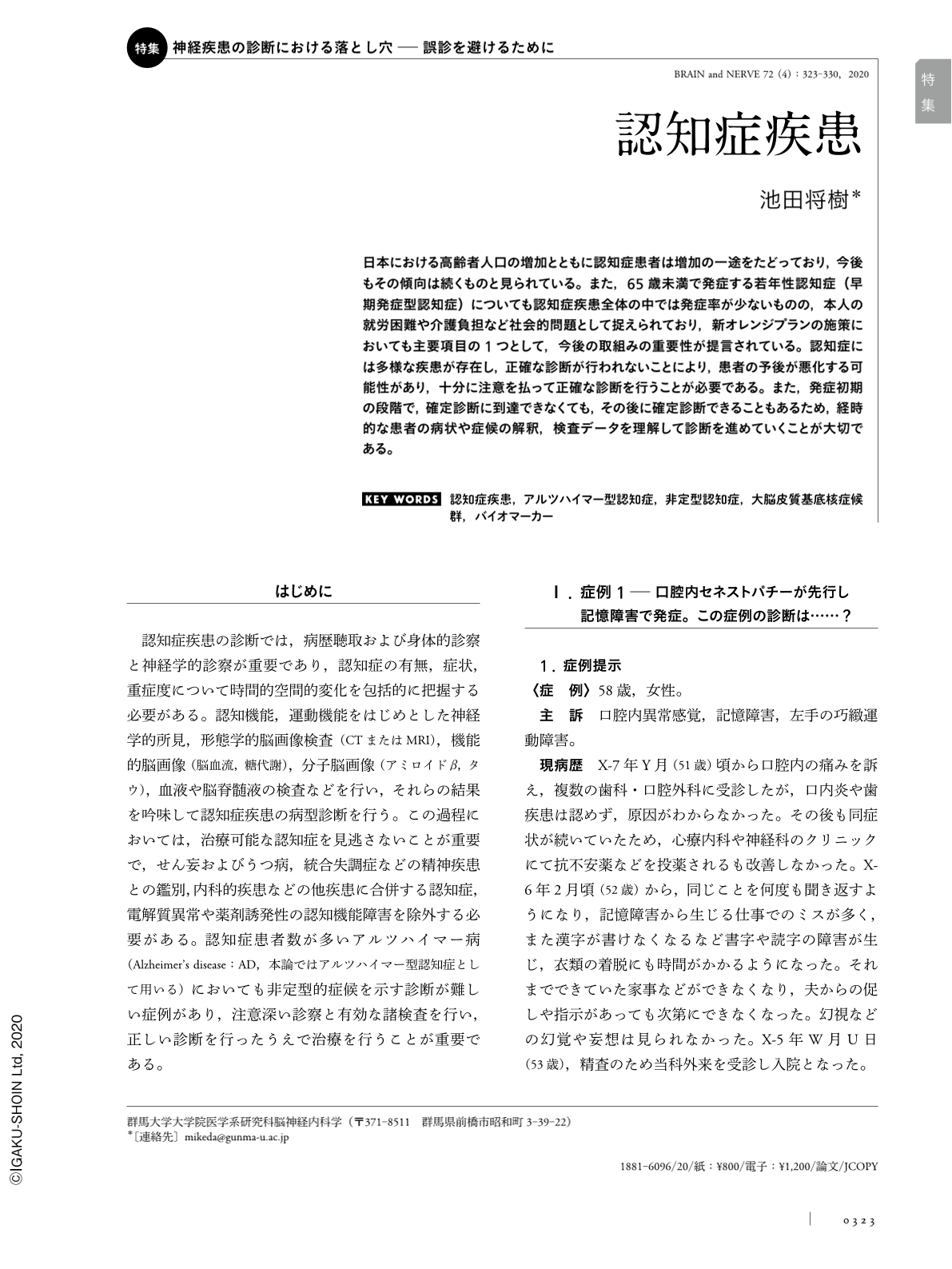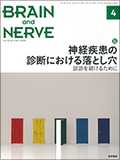Japanese
English
- 有料閲覧
- Abstract 文献概要
- 1ページ目 Look Inside
- 参考文献 Reference
日本における高齢者人口の増加とともに認知症患者は増加の一途をたどっており,今後もその傾向は続くものと見られている。また,65歳未満で発症する若年性認知症(早期発症型認知症)についても認知症疾患全体の中では発症率が少ないものの,本人の就労困難や介護負担など社会的問題として捉えられており,新オレンジプランの施策においても主要項目の1つとして,今後の取組みの重要性が提言されている。認知症には多様な疾患が存在し,正確な診断が行われないことにより,患者の予後が悪化する可能性があり,十分に注意を払って正確な診断を行うことが必要である。また,発症初期の段階で,確定診断に到達できなくても,その後に確定診断できることもあるため,経時的な患者の病状や症候の解釈,検査データを理解して診断を進めていくことが大切である。
Abstract
As the elderly population has increased in the recent years, the number of patients with dementia in Japan has been increasing, and this tendency will continue in the future. Although patients with juvenile-onset (early-onset) dementia form only a small proportion of the whole population with dementia, juvenile-onset dementia is associated with serious social problems with respect to working and burden on caregivers. Juvenile-onset dementia was considered an important item in the “New Orange Plan” devised by the Japanese Government for policy measures against dementia. We should pay careful attention while confirming the diagnosis of dementia because the prognosis of the patient could change thereafter due to inadequate treatment and care. Even if a diagnosis for the patient is not confirmed at an early stage, we need to understand the symptoms, activity of daily life, and levels of various biomarkers, which could aid in confirming the final current diagnosis, thus, leading to administration of adequate treatment.

Copyright © 2020, Igaku-Shoin Ltd. All rights reserved.


